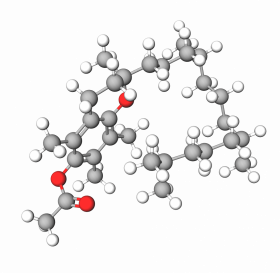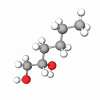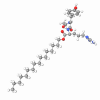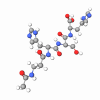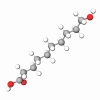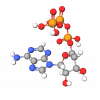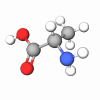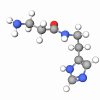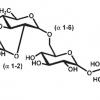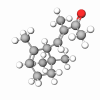Tocopheryl acetate is a specific derivative of vitamin E acetic ester of all-racemic alpha-tocopherol, belonging to the group of oil-soluble Vitamins in a class of organic chemicals known as tocopherols. These compounds are considered fat-soluble antioxidants, but they also have many other functions in the body. Tocopheryl acetate is a synthetic tocopherol and one of the most potent antioxidants.
Vitamin E acetate is a clear, colorless to greenish-yellow, viscous oily liquid, an ester of d-alpha-tocopherol commonly used in vitamin gel caps. It is preferred for cosmetics and food fortification use because of its improved oxidative stability and emulsion performance derived in a pure synthetical synthesis route, without any animal raw material or gene modification technology. In addition, it has a shelf life of at least four years with proper storage.
This modification of alpha-tocopherol is helpful in formulations because it is stable (it doesn't get oxidized). That's actually good because the alpha-tocopheryl acetate can penetrate through the skin barriers and get to the living cells. So about 5% of the amount smeared on the skin is converted to free tocopherol once it's inside those deep skin cells and provides beneficial antioxidant effects.
The antioxidants protect cells from damage that naturally occurs from free radicals. These free radicals are formed during normal processes (such as energy production) in the body. For example, Tocopheryl Acetate protects cell membranes, RNA, and DNA from free radicals, promoting cell health and vitality. It also accelerates wound healing, moisturizes the skin, and minimizes transdermal water loss.Stability
Tocopheryl Acetate is one of the most stable vitamin E derivatives, so, under the general processing conditions in cosmetics it retains its efficacy. This ingredient is fairly stable to air and heat but is hydrolyzed by moisture in the presence of alkalis or strong acids into free tocopherol (DL-Tocopherol) which is readily oxidizing by losing vitamin activity. The recommended pH range is 4.0 - 8.0. It is also sensitive to heavy metals.
Solubility
Tocopheryl Acetate is readily soluble in all cosmetic oils, thus ideal for mixing into the oil phase of cosmetic emulsions, freely soluble in alcohol so that supplementation of alcohol-based formulation would be possible and also useful due to the topical benefits of Alpha-tocopheryl acetate.
What are the benefits of Vitamin E Acetate?
The central role of vitamin E Acetate is an in vivo antioxidant. There is significant evidence that when topically applied, it plays a crucial role in protecting body cells and tissues from damage caused by free radicals, which are generated by natural body processes, and environmental stresses.
Topical application is critical because of the low levels of vitamin E present in the epidermis and dermis and its depletion by UV light and ozone. (Oral supplementation of 300mg vitamin E per day does not significantly increase tocopherol in human skin lipids.)
Topical application is essential for mature skin as well. With advancing age, perspiration levels go down, reducing the levels of vitamin E secreted onto the face. As a result, less vitamin E is present in the dermis and epidermis of mature skin and the surface, reducing the protection against environmental stresses.
The most critical attributes of vitamin E Acetate are:
- Moisturizes skin from within
- Enhances skin smoothness through cumulative effect (in particular, useful in soap bars and liquid soaps)
- Soothes and aids in tissue repair
- Protects skin from environmental stress:
- helps block lipid peroxidation inhibiting extraordinary antioxidant properties
- reduces UV induced damage (helps enhance the performance of UV blockers in sun care products by quenching free radicals formed by UV light)
- helps protect against ozone
- relieves lower erythema, edema, and skin sensitivity following UVB exposure.
